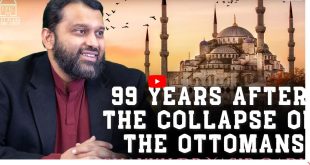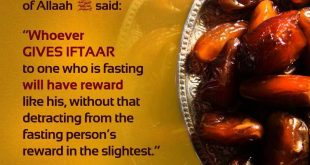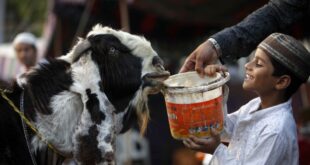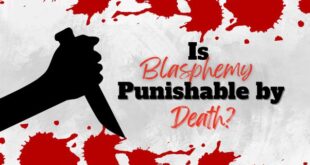We arrived to Sarajevo on Sunday, December 24, 2006, sometime around noon. The first impression was that of a pretty small airport and a hectic reception by a crowd of taxi drivers who would give you a careless "don't worry, it's doable" nod to every inquiry you pose.
With the bags thrown hastily in the trunk and with us packed like lost sheep in the cab, the car headed straight for the destined hotel which lies on the uphill of downtown Sarajevo. The first visible connection with Sarajevo was the graffiti. When we asked the driver whether it was legal or not, he said "No, but the police didn't mind it actually." Among the many similarities we felt by then, loose commitment to the rule of law was definitely making us feel at home.
Sarajevo has a rhythm of its own, a character and charisma. It is not a modern capital, but it sure is not a marginal one either. The coexistence of mosque and cathedral, pub and museum, veil and miniskirt, and Euro-beat and the oriental buzuq can in no way be coupled anywhere else in the world — at least not in the natural fashion it does in Sarajevo. To me, Sarajevo is like the image of how the Orient would react to the West. The city resembles a true reaction of fusion and coexistence, something that many other sites claim to do.
In one street, we would see Turkish architecture yet also European font inherited from the Austria-Hapsburg times. This mixture makes Sarajevo the unique place that it is. The city is small, and its vital options are limited, but it is lively in its own way.
Our visit was mainly to meet those who can talk to us about the Bosnian war from different approaches and points of view. But no one, even those who lectured on the war, seemed to be ready to talk about the truth of what they felt. However, sometimes we would get a glimpse of certain feelings and opinions, an act that one could easily determine as an unconscious slip of a true tongue. While we were moving from one site to another, I was wondering of what a regular Bosnian — if they truly referred to themselves as Bosnians — would be saying about the war. The city seemed quite settled, but beneath that silence seems to lie deeply buried wounds.
We spent eight days in Bosnia: We stayed in Sarajevo and visited the city of Mostar. The people we met and truly got to know were so kindhearted and lovely. They manifested simplicity, love, tolerance, and a true fun-loving character. But I always felt that I am missing out on other people to meet and to get to know. My interactions with taxi drivers, salespersons, restaurant workers, and random people on the street made me feel that I had only a faint image of what people really experience in Sarajevo.
Unfortunately, our visit was too short and we had to make the best out of it; but, on the other hand, I felt that any period of time there would have been too short for me anyway. However, in these eight days, I was enjoying the warm welcome I had received and felt empathy for the people who had suffered a similar experience of mine. As a child of a war-torn society myself, and for all I knew, I was a "Sarajevan" like everyone else.
A Different Image of Islam
Among the numerous disparities we came across, the Islamic image of Sarajevo was so attractive. Being a resident of the Middle East, to me Islam was always the dominant culture and every other aspect revolved around Muslim foundations, be it in architecture, language, art, habits, or even organization. But in Bosnia it was exactly the opposite. It was as if Muslim culture was elegantly trying to sneak into the wider image of the environment.
In one street, you would feel the presence of communist Yugoslavia, Christian Europe, and a uniquely different Muslim identity. This changed the whole image of what it meant to be a Muslim within such a diverse community. It was an experience and a visual suggestion to what kind of contribution Islam can have within a wider culture. With time, this feeling evolved to become a solid proof of the openness of the Islamic religion and its ability to coexist with other cultural and religious values, and even enrich these values of people living in a modern cosmopolitan environment.
Islam in Bosnia is more of an ethnicity than a "religion" in the orthodox sense. This can be understood by observing the daily practices of an average Bosnian Muslim. Generally, Bosnian Muslims identify themselves as "Bosniaks," which in cultural terms is an indication of an ethnic origin and a historical root of identity. The reason behind this type of identification is not aimed at discrediting Islam; it simply explains who the Bosnian Muslims are, how they adopted Islam, what makes their version so unique, and how it differs from Islam we know as a religion.
Bosniak Identity of Bosnia
Muslims in Bosnia were originally either Serbs, Croats, or Christian Bosnians who converted to Islam under Turkish rule in the mid 15th century onwards [1]. There are two other ethnicities that claim the region as their homeland, and — in the sociopolitical sense — this is a legitimate promotion of statehood taking place. Whether by implication or by direct confrontation, this comes at the expense of Bosnian statehood; in practical terms, the Muslims' claims for statehood. A dichotomy among two historical legacies in the region concentrates on the Kingdom of Croatia (Tomislav's Kingdom, established in the ninth century) and the Tsardom of Serbia (Dusan's Tsardom, which reached its peak in the 14th century).
The development of Catholic Croatia and Orthodox Serbia was viewed as a natural consequence of Christian divisions in Europe. The undeniable right for both ethnicities to have their own states was viewed as a natural heritage of European Christian values now being transformed into a secular version known as "liberal democracy."
The Bosnian state, however, is claimed to be blocked by two "defects": First, the "conversion" incident of the Muslims and their linkage to something other than post-Renaissance Europe; and second is the incompatibility of their Islamic identity and the European concept of "liberal democracy." Unfortunately, this approach is the one being adopted by the schooling system in Bosnia itself. It is also apparent in the way the international community dealt with the Bosnian war to orchestrate its end. It may have changed in shape afterwards, but in context it is still there. This fact unveils a truth and conceals another.
The dominant approach that we have seen illustrates the Muslims as a group that divorced itself from its origins by its choice of an "incompatible" religion. The heroes of this approach use this as a prerogative to renounce the Bosnian Muslims' rights for self-determination and hence statehood. This behavior is done in such an eloquent manner that justifies the rejection of Muslims in a rational and objective embellishment, away from religious sensitivity as claimed. This "polite" reasoning may be seen as reflective of European secularism, but it unveils the truth of the denial of Bosnia by the Serbs and the Croats. The European collaboration in this game includes the controversial interest-based support that Russia and Germany provided to Serbia and Croatia respectively.
Although the EU was decisive in recognizing the Bosnian declaration of independence in 1992, it was indecisive in condemning the attack on the Bosnian state, and even more indecisive in its practical efforts to intervene and stop the ferocities.
The acceptance of the potential destruction of Bosnia-Herzegovina is evident in the proposals of the International Conference on the Former Yugoslavia, held on October 4, 1992. The proposals included suggestions for a loose confederation of three ethnically organized republics with a potentially significant degree of independence, even including matters of security. Another acutely dangerous suggestion was that of a Muslim state, with Serbs owing allegiance to the Federal Republic of Yugoslavia, and Croats to Croatia.
These suggestions meant indirect international support for anti-Bosnianism. It also tacitly acknowledged the motives for the commencement of war; that is the claim that might be right.
Questioning the intentions and motives behind the European policy towards the Bosnian war and the disintegration of Yugoslavia may dilute any proper assessment of its policy towards the Bosnian Muslims. But the truth remains that, to this day, having Muslims within the communal and ethnic balance in Bosnia has been an "uncommon" phenomenon for European politics and has halted the plan to divide Bosnia ethnically.
This fiasco does not only unveil the truth behind the abnegation of Bosnia, it also conceals another truth. The historical and cultural identity of Bosnian Muslims reflects a highly secular version of Islam; their political demands were not calling for an Islamic state but rather for a united Bosnian state where the three ethnicities coexist under Bosnian nationalism. Furthermore, the Bosnian Muslims themselves have always recognized the true limits of their power within a "Christian Europe," and, hence, have been the primary thinkers of Bosnian nationalism.
In addition, there is historical evidence of the existence of a Bosnian identity before the introduction of Islam. I have visited museums in Sarajevo that display historical evidence dating back to the early 8th-century kingdoms proclaiming a Bosnian entity. I have also seen maps, documents, and seals of Bosnian kings proving that the denial of Bosnia may be due to the fact that it became more or less Muslim.
Bosnian Muslims have been forcefully driven towards political segregation and forced into a federal system under which each ethnicity maintains considerable autonomy; however, the true face of coexistence cannot be denied when one wanders around Sarajevo. The city's residents are mostly Muslim, but it is only just to testify the diversity and the openness in which all "Sarajevans" live together.
The rate of mixed marriages is relatively high; the whole identification process of every individual, whether historically or socially, minimizes the divisions that the politicians have so long played on. Throughout my visit, I met Muslims who heartedly interacted with Croats and Serbs and strongly mocked the idea of division. I also met people of mixed origins and had never cared for issues of religion or ethnicity.
The Religious Nature of the Conflict
Dragan Abbasovich, an expert on religious and ethnic studies, testified that all three ethnicities in the Balkans are actually Slav. This proves that the conflict was of a religious nature, which in fact was quite low key in the Communist times. Commenting on the religious practices in Bosnia, Abbasovich stated that before 1992 "15 percent of the population identified themselves by religious confession, whereas 4 percent of them actually conformed to regular religious practice," he continues, "today, 90 percent of the population identify themselves religiously and 50 percent practice religion regularly."
Clearly, the war triggered the denominational identity of the Bosnians. Although Muslims had always sought recognition (which they got in 1974 from Tito), they never sought a Muslim state in Bosnia. Of course, during the war their political discourse became highly denominational and sometimes they would call for their own Muslim entities but these calls never amounted to a serious claim within the Muslim community.
They claim that they were attacked and discriminated against, which drove them to self-defense. Although one should consider all parties of war as guilty, very astonishing details show that the presence of a Muslim community in the Balkans was dealt with in a very hostile manner.
During our visit to Mostar we were particularly interested in the fact that the city is equally divided among Muslims and Croats. But the truly astonishing fact was the dispute among the true dividing line between the two communities. While the politically recognized line is that of a river cutting the city in two, all those we met confirmed that this line is only adopted because it symbolized the boundaries between the Turkish controlled territories and the Austrian controlled ones. In fact, the divide line extends beyond that to prove that the true communal divisions had nothing to do with a historical Muslim-Croat divide.
As the political system remains a really complex order in which Bosnia is divided and crippled through a power-sharing formula, the Muslims continue to adopt a peaceful discourse to their hostile surroundings. The Bosnian Muslims should not victimize themselves today; they should continue to be the living example of the true desire for peaceful coexistence, the meeting point between East and West.
Bosnia has succeeded in surviving a war of erosion; it is a land that has insisted to embrace a true fusion of cultures and religions. It represents a truth that the world seems incapable of digesting; the truth is that Islam is not a hostile religion but one that does harbor peaceful coexistence and can contribute many riches to open-minded and multi-cultural societies.
Source : http://www.onislam.net
 Sri lanka Muslims Web Portal Diversity and Inclusiveness
Sri lanka Muslims Web Portal Diversity and Inclusiveness



